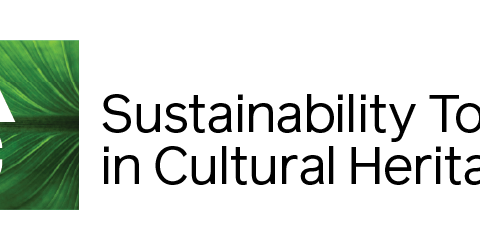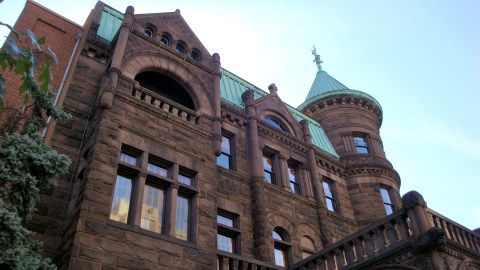This article originally appeared in the March/April 2009 issue of Museum magazine, a benefit of AAM membership.
Q:
I am executive director of a small history museum. Our board of directors is drafting a new institutional code of ethics. Some of our board members want to include a preamble defining our mission to include fostering positive social change in our community. Many members of the staff are really nervous about this. They keep muttering, “We’re a museum, not a political advocacy group or social service agency.” Has our board been attending too many rallies? Are the ethics of social justice one and the same as museum ethics?
A:
We are delighted to hear that your board’s discussions about ethics are pitched at this lofty level. The more usual complaint is that board members want to amend the museum’s code of ethics to enable them to be awarded the museum’s insurance contract without sending it out to bid. And it is also great that your board is taking a fresh look at your institution’s code of ethics. Not only should every museum have a written code, it is good practice to review and reexamine it from time to time—at least once a decade. Museum ethics are an ongoing conversation. What’s ethical today may seem dicey tomorrow—just read the morning paper for examples. Come to think of it, maybe examining it once every five years would be a good idea given the rapid rate at which societal norms are changing.
Let’s examine the substance of the issue your board is debating. Can museums be a positive force in creating more just communities? Absolutely! In its landmark 1991 report Excellence and Equity, AAM challenged museums to “make education central to their public service” and to “reflect society’s pluralism in every aspect of their operations and programs.” Eight years later, AAM raised the stakes with its report Mastering Civic Engagement: A Challenge to Communities. This second document encouraged museums to place their assets and talents at the service of communities to support their social, economic and moral development. Do this, AAM argued, and the museum can become “an active, visible player in civic life, a safe haven, and a trusted incubator of change.” Nor should museums lapse into what the report called “using the perceived limitations of mission as an excuse to avoid the kind of ongoing self-examination and change that connects a museum to its community.” AAM’s new Center for the Future of Museums has as an explicit part of its mission “helping museums transcend traditional boundaries to serve society in new ways.” You and your board might want to keep an eye on its forums and publications in months to come.
So your board is definitely on to something: They are asking the right questions. Does that then mean social engagement is also an ethical requirement? Well—perhaps not. While AAM invites museums to see themselves as institutions in service to society, it’s worth noting that no requirement to do so has yet been written into the AAM Code of Ethics for Museums. Read the code itself, and you see a much more narrow conception of museum ethics—one that directly relates museum ethics to the traditional role of stewardship of collections and that elevates fidelity to mission as a paramount ethical value. The code still avows, “The distinctive character of museum ethics derives from the ownership, care, and use of objects, specimens, and living collections representing the world’s natural and cultural common wealth.” It further argues that loyalty to the mission of the museum and to the public it serves is the essence of museum work.
It is not that museum people are unwilling to embrace social causes or fight for social justice. To their credit, museum professionals take ethics very seriously and sometimes are characterized as—to quote the label once thrown at one of the authors—“hippy-dippy do-gooders.” Most of us can cite cases in which colleagues have quit, been fired or suffered significant hardships for the sake of professional ethics—for example, by standing up against a board that wants to sell collections items to plug an operating deficit. Precisely because we do take ethics seriously, however, the field thinks long and hard before elevating a principle from the status of recommended practice to ethical requirement. It is one thing to say that a practice is a good idea, one from which all museums could benefit. It is quite another to say that a practice is an ethical imperative, implying that we as professionals should resign from any institution or shun a fellow professional who refuses to implement it. In this sense, saying that something is an ethical requirement is very much like placing a loaded gun on the dinner table—it casts a distinct chill on the conversational exchange of views.
When it comes to social justice, there are sharp differences of opinion within the field as to whether engaging the resources of the museum to build more just communities is an ethical mandate or simply a commendable practice. Many of the younger members of the profession are ready to take the leap and say that the two must become one. At a recent conference at Seton Hall University sponsored by the Institute for Museum Ethics, the predominantly young audience of museum studies students were thrilled by a clarion call from British museum studies professor Richard Sandell to make social activism a core part of their museums and careers.
Yet at the same forum, many veteran practitioners cautioned against promoting the pursuit of social justice from commendable act to ethical mandate. Who defines the good, they ask, museum professionals or members of the community? Who defines the direction of “progressive” change? “We museum people went down this road in the 1930s,” noted one éminence grise, “when museums, in service to progressive ideals and in the hope of making a better society, endorsed and celebrated the so-called science of eugenics. What’s to keep us from making the same mistake again?” That’s a good question, one your board might want to ponder. Here’s another: How far should a museum go in relinquishing its authority and inviting the community to draw on the museum’s assets to create their own meanings? Does a science museum have to include creationists among its community curators? Maybe museum ethics require that, from time to time, we stand not necessarily against but at the very least in critical dialogue with popular views or perceived needs and desires in our communities.
What you are seeing here is the healthy conversation by which museum ethics advances. And until the profession itself reaches a greater consensus on these points, humility might be the better part of valor. Perhaps you, your board and your staff might consider how your museum can foster rich civic engagement and dialogue with your community without yet making it an ethical mandate. Social engagement is a good idea that makes your museum and your community stronger. And isn’t that reason enough to do it?
Elizabeth M. Merritt is founding director, AAM’s Center for the Future of Museums, and Erik Ledbetter is director, AAM’s international programs.








